The beauty of the Mediterranean diet is the principles of a balanced diet, not a diet.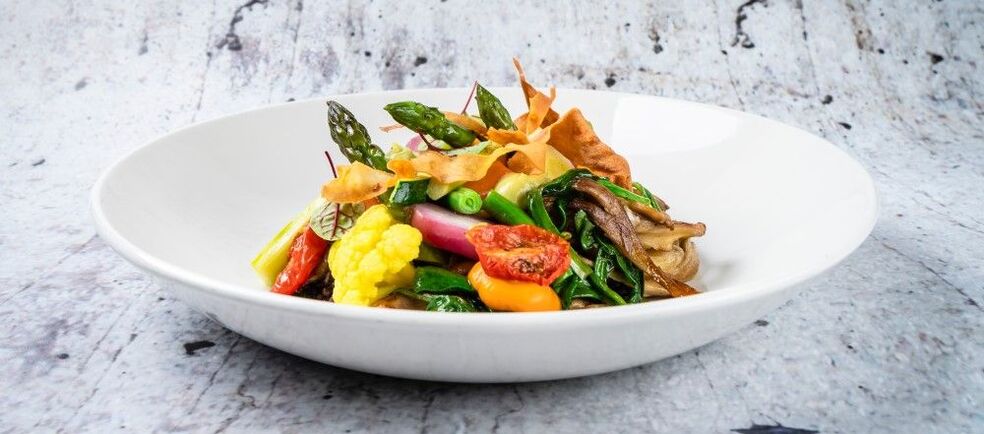 As a rule, almost all diets involve strict restrictions, it should be carried out under the supervision of a physician and have contraindications. The Mediterranean diet is suitable for everyone, including children, pregnant women and the elderly. Even if you have allergies or are intolerant to certain foods, they can be easily replaced by others. You will not be hungry or stressed. Instead, you will enjoy your food to the fullest. It is no coincidence that the people of these areas are in excellent health and happy.
As a rule, almost all diets involve strict restrictions, it should be carried out under the supervision of a physician and have contraindications. The Mediterranean diet is suitable for everyone, including children, pregnant women and the elderly. Even if you have allergies or are intolerant to certain foods, they can be easily replaced by others. You will not be hungry or stressed. Instead, you will enjoy your food to the fullest. It is no coincidence that the people of these areas are in excellent health and happy.
The Mediterranean diet is a way of life that allows you to stay in shape, rarely get sick and prolong your youth. Learn the basics of Mediterranean nutrition by thinking about adapting your diet to proper nutrition.
In 2010, the Mediterranean diet received the official status of UNESCO as an intangible heritage of the Mediterranean countries: Greece, France, Italy, Morocco, Spain, Croatia, Cyprus, Portugal.
If we look at history, we can see that in the gastronomic culture of Ancient Greece, and then in Ancient Rome, there were all the main components of this diet. Fruits, vegetables, seafood, olive oil, legumes, meat and sweets are limited. In other words, plants rich in vitamins, minerals and fiber, high-quality protein, essential oils and slow carbohydrates. They stimulate metabolism, improve digestion, strengthen all functional systems of the body, slow down the aging process with the help of antioxidants, increase the hormones of joy, promote beauty and harmony. Most importantly, they always feel good, but in the Mediterranean countries, vegetarianism is rare, and red meat and very heavy dishes are almost non-existent.
Researchers at Harvard School of Public Health have studied the health effects of the Mediterranean diet. type ".
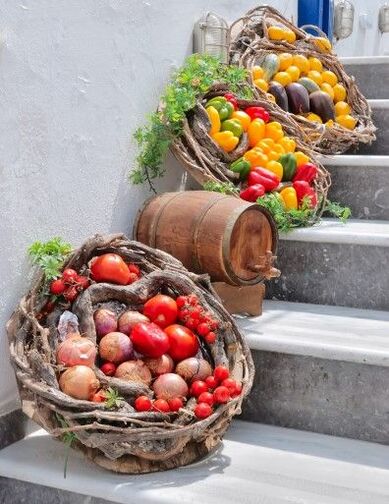
The term itself originated in the 1950s and was introduced by Dr. Ansel Keys, a professor at the University of Minnesota. In 1945 he landed in Italy with a group of American troops. Case, who observed the locals, found that they had fewer problems with their cardiovascular system and lived longer than in their home country. He suggested that this was the result of a lifestyle and diet system, and then proved it. Shortly before that, in the late 1930s, the Italian nutritionist Lorenzo Piroddi first linked nutrition and susceptibility to diseases such as diabetes, obesity and bulimia, so he was called the "father" of the Mediterranean diet. Ansel Keys, on the other hand, stayed on the coast in Italy for 100 years.
Let's take a look at the benefits of a Mediterranean diet.
Strengthens the cardiovascular system. Omega fatty acids from olive oil, nuts, seeds, and certain types of fruits and vegetables keep blood vessels clean and supple.
Prevents or treats diabetes because low-glycemic foods predominate in the diet and almost no sugar is consumed, which means fast carbohydrates.
Fiber-rich foods are part of every diet, which ensures a good metabolism, helps to lose weight evenly and maintain positive dynamics over time, improves the condition of the nervous system, improves mood and stimulates brain activity.
Most foods in the Mediterranean promote the synthesis of endorphins, dopamine, serotonin and tryptophan, known as the hormones of happiness. This reduces the risk of developing Parkinson’s, Alzheimer’s and dementia in old age.
Talking to friends, having long Sunday dinners with family, picnics in nature, cooking together are all part of the culture of the Mediterranean countries, which is useful to reduce stress and anxiety and to increase positivity in daily life.
Prolongs youth and beauty with flavonoids & antioxidantsThey reduce the damage caused by the oxidation process and worsen the internal and external condition. Selenium, manganese, zinc, vitamins A and E strengthen the skin, and hair becomes shiny and thick.
There are almost no disadvantages of Mediterranean nutrition.
This will help you to eat right and stay healthy. It’s non-seasonal, time-limited and means a different menu. Its only drawback is the inability to lose weight quickly.
But in reality, it turns out to be a plus. Weight loss will be followed by fatigue and constant tiredness. We will experience stress due to sudden changes in diet and loss of normal daily calorie intake. The body responds to poor health, decreased energy, immunity and mood, and if the diet is not controlled, chronic diseases will increase or new ones will appear.
Yes, for a while the weight is lost quickly, but the brain activates a possible starvation defense, and even a low-calorie diet allows the body to store fat in the body. Therefore, in most cases, after the end of the diet, the weight will return, and sometimes even increase.
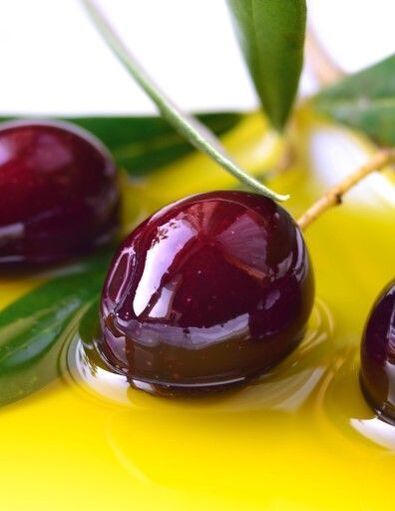
This is not the case with the Mediterranean diet. You may not see rapid change, but be patient. You will notice the first results in a month or two. You need to eat small portions five times a day - then you will not feel hungry, and the body will receive the full amount of nutrients it needs. Gradually, a balanced diet restores the body's functional systems, improves metabolism, and restores weight. Add physical activity, or at least a long walk, and the results will be noticeable.
The list of approved products is extensive. Nutritionists have identified them in a pyramid based on the sources of complex carbohydrates, quality fats and vegetables (60%). The first includes cereals, pasta made from durum wheat, bread made from flour, nuts and seeds, and legumes. Products of this group should be included in the menu every day.
Vegetables are represented by different types. Especially look for leafy vegetables like spinach and cabbage, eggplant and zucchini, cauliflower and broccoli, tomatoes, peppers and dill with minimal starchy vegetables. The WHO recommends a daily intake of vegetables - 6 servings per day - based on the number of vegetables in the Mediterranean diet.
In the absence of modern technologies for storing vegetables in the past, cooking was based on the principle of periodicity. Alas, seasonal vegetables in our conditions are a short-term pleasure. There is a solution: use frozen vegetables. Unlike imported ones, shock freezing, which takes place within a few hours after harvest during the ripening period, retains almost all of the vitamins they contain. The cleanliness of vegetables in winter and spring is arbitrary. Manufacturers take into account the long distance and storage, for which they process them with chemicals.
Chickpeas, lentils and beans contain complete plant protein, a rich food complex and fiber. They saturate well and create a feeling of satiety for a long time. Combined with drill plants, a variety of balanced dishes are prepared. Thick, rich soups will keep you warm in the cold season, and salads are a great option for dinner. Try to eat vegetables and legumes two or three times a week for dinner.
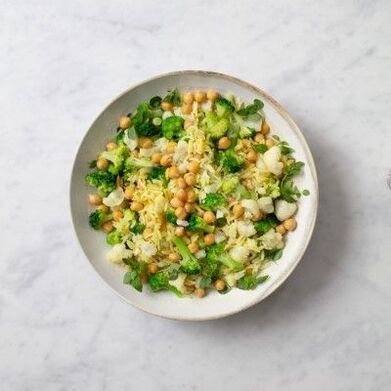
With jasmine rice notes, mini broccoli, mini cauliflower and truffle oil
Ingredients:
- Chickpeas (chickpeas) Bonduelle 1 canned (310 g).
- Mini broccoli Bonduelle 1 pack (300 g).
- 1 pack of cauliflower mini Bonduelle (300 g).
- Jasmine rice 200 gr.
- Basil 40 g.
- Curry 1 tsp
- 20 ml of olive oil.
- Salt to taste.
Recipes:
- Cook the rice according to the instructions. Add curry and mix.
- Heat the olive oil in a pan and lightly fry the cabbage and broccoli.
- Combine cabbage, peas and rice. Salt if necessary. Garnish with basil leaves before serving.
Pasta is not bad if it is made of hard flour: it is low in calories, rich in vitamins and minerals, and digestible. In addition, pasta, like cereals, is one of the main sources of B vitamins. Pasta made from unrefined flour provides energy to the body, for example, it is recommended to eat it before physical activity.
Of course, if you accompany the dish with a fatty sauce or serve it as a side dish to meat, then all its benefits can be negated - such a dish has nothing to do with the traditions of the Mediterranean. Light sauces based on olive oil, vegetables, fish and seafood are the right choice for pasta.
Mini spaghetti with broccoli and pine nuts
Ingredients:
- Broccoli packets (300 g).
- Spaghetti 250 gr.
- Pine nuts 40 g.
- 20 ml of olive oil.
- Ricotta 100 g.
- Salt to taste.
Recipe:
- Until the spaghetti is cooked al-dente.
- Boil the broccoli according to the instructions.
- Crush 100 g of broccoli with a blender. Mix with ricotta and olive oil.
- Toss in spaghetti sauce and remaining broccoli, add salt and heat on low heat in a saucepan for 2 minutes.
- Roast the pine nuts in a dry pan and sprinkle over the spaghetti before serving.
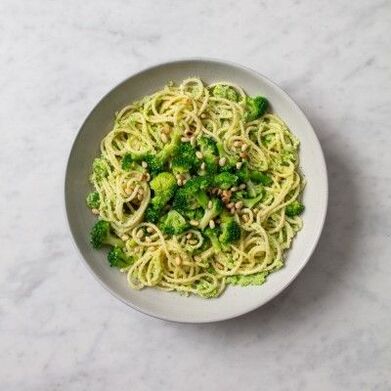
Olive oil, alpha and omega in the Mediterranean diet are the gastronomic symbols of this region. Olives began to be used here thousands of years ago. If left untreated, their taste is very bitter, so they are salted or squeezed from butter.
This is because oleuropein is a phenolic compound that, along with omega fatty acids and vitamin E, determines the usefulness of olives. Phenol - a powerful antioxidant, has antibacterial and anti-inflammatory properties and fights free radicals. Researchers have found that 2 to 4 tablespoons of olive oil a day can reduce the risk of coronary heart disease.
Don’t be surprised once vitamin F was mentioned. Most people are not aware that essential fatty acids have a common name - Vitamin F These include archidonic, linoleic and linolenic acids. The human body does not produce them and only receives them through food.
Remember, though, that not all olive oil is created equal. Cold pressed oil is best produced mechanically. Its acidity, ie the content of organic acids does not exceed 0. 8%. In the process of production, this oil completely retains vitamins and antioxidants; It should be stored at room temperature in dark glass bottles. It should not be heated.
Add olives anywhere: in salads, soups, main dishes, pies, toasts or omelets. Olives have a salty taste and do not require additional salting, which reduces the amount of salt consumed. Seek inspiration from choosing olive recipes.
The second stage of the pyramid is the sources of the right protein, which makes up 30% of the Mediterranean diet. Part of the body gets its proteins from plant foods, fish and seafood, natural kefir, cottage cheese, nonfat cheeses (especially goat and sheep milk cheeses), white meat (chicken, turkey, rabbit) and eggs. . This group of foods should be eaten three to four times a week.
Fish should be eaten several times a week, just as it is left on a tasty and healthy cookbook, not just on Thursdays. If you choose one of the rivers and the sea, choose the second and oily types. With its help you get not only protein, but also a wonderful complex of omega 3 acids, iodine and vitamins A, E, D, C, B, which are rare in food, and a dense structure of muscle fibers. Therefore, they begin to be absorbed immediately, which makes this fish an ideal dietary product.
Talking about fish often leads to complaints that it is expensive and that it is almost impossible to buy good fish. Let us answer these interesting questions.
In fact, few people are able to buy freshly caught fish. In this case, like vegetables, do not be afraid to freeze deep. Follow the rules of defrosting: on the bottom shelf of the refrigerator, it lasts for 10-12 hours and retains all the nutrients. Also, like vegetables, when buying, make sure that the packaging does not contain ice crystals. They are evidence of improper storage of fish: the temperature regime is not observed. Do not freeze the fish yourself.
Fish in all countries is an expensive product, but there is a way out. You can't buy salmon or tuna fillets, you can buy cheaper varieties: cod, mackerel, pink salmon, herring, halibut, flounder, saure, sardines. Mostly in the Mediterranean countries, most families cook from these types of fish, and the dishes with them are very tasty and varied. Most people ignore canned tuna, but it’s free: it’s made on its own juice, not fat, and has a much healthier budget than fresh and healthy ones. It's a pleasure to cook salads with it: don't bother cutting.
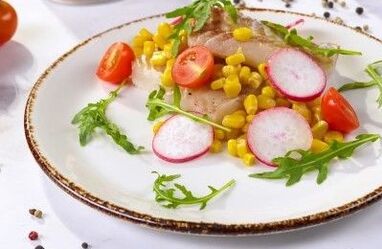
Cod fillets with corn
Ingredients:
- Young corn Bonduelle 1/3 jar (140 g).
- Cod fillets 200 gr.
- Radish 2 pcs.
- Cherry tomatoes 5 pcs.
- 2 pinches of lemon peel.
- 1 teaspoon of lemon juice
- Different vegetables depending on taste.
- Arukula for service.
- Salt and pepper to taste.
Recipe:
- Dry the cod fillets, remove the bones with tweezers and place the fish in a baking dish. Then sprinkle a little lemon juice, rub with a mixture of salt, pepper and lemon zest, bake in the oven at 180 degrees for 15-25 minutes, depending on the size of the fillet.
- Divide cherries in half, cut radishes. Fine cutting of herbs.
- Put the prepared cod fillets on a plate. Garnish with corn, tomatoes, radishes and herbs. Garnish with arugula.
The same goes for seafood: we don't target lobsters, oysters and lobsters, but let's take a closer look at mussels and shrimp. Iodine, selenium, zinc, iron, copper, magnesium - this is not a complete list of minerals, they are low in calories. Shrimp is rich in vitamin B12 - it is involved in the production of hemoglobin, and in mussels - vitamin E, which protects cell membranes from damage.
The last 10% includes red meat, animal fats and simple carbohydrates, which are recommended to eat no more than once a week. Try to cook the meat gently - cook or bake and fry on a low-fat grill. Living without desserts, even if you do not enjoy sweets, chooses healthy desserts. Use a minimum of sugar, the natural sweetness of fruits, honey and even vegetables is enough. For example, young corn is sweet in its own right, and the desserts made with it are delicious and original, and you can eat it straight from the can.

Fruit salad with young corn
Ingredients:
- 1 jar of young corn Bonduelle (340 g).
- Blueberries 70 gr.
- Strawberries 70 gr.
- Raspberry 70 gr.
- Orange 1 piece
- Walnuts 80 gr.
- 400 ml of natural yogurt.
Recipe:
- Peel an orange and grate it. Cut the orange into slices.
- Drain the bowl of corn. Mix corn and berries.
- Chop the walnuts and add to the yogurt and mix.
- Put fresh corn and fruit in small bowls, add yogurt with walnuts. Serve with orange slices.
Finally, a few words about spices.
The scent of sunny heat and Mediterranean gardens contain rosemary, sage, thyme and marjoram. Parsley and garlic are the simplest and most affordable spices used by chefs in the region for centuries. A mixture of alpine, Provencal or Italian herbs fills the dishes with essence and interesting nuances. In addition, they allow you to use less salt - the sparkle of the spice is enough for a full-fledged taste.
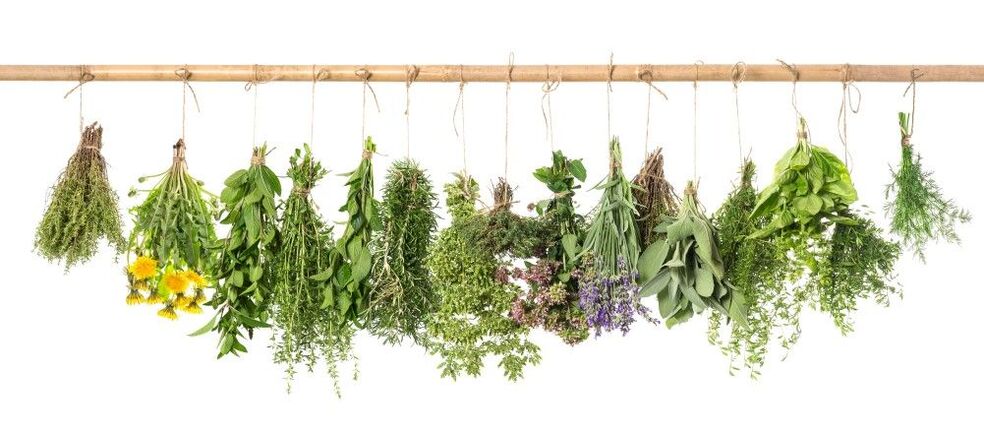
There are no banned foods in the Mediterranean, and their list is consistent with that provided by all nutritionists. These include fast food and all kinds of "junk" foods, industrial semi-finished products, sauces, preservatives and flavor enhancers.
Drink plenty of water, don’t forget a glass of dry red wine (but no more! ) And stay healthy!














































































